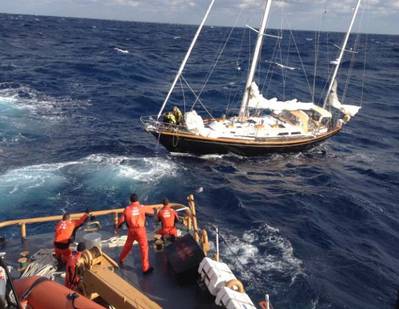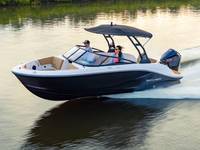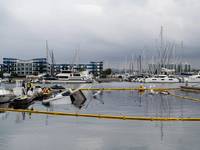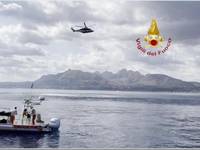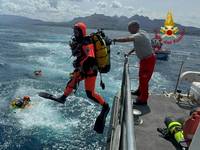Prepare for Offshore Sailing
In a recent offshore regatta, numerous sailboats experienced steering system and other failures which required assistance and/or rescue by the U. S. Coast Guard when a weather system stalled offshore creating higher than expected sea states and winds. The Coast Guard responded using an array of assets to render assistance.
Offshore sailing requires special knowledge, skills and abilities. Vessel equipment and components must be thoroughly checked before getting underway and periodically while at sea. The offshore domain’s remoteness adds a negative dynamic to survivability concerns. Preparation is key to minimizing misfortune.
The Coast Guard strongly recommends that owner / operators of offshore sailboats ensure proper maintenance and repair of their critical mechanical systems to reduce the possibility of failure during stressed operating conditions.
- Operational limitations of the systems must be understood.
- Sailors should have the repair manuals associated with their important propulsion and steering systems onboard and be able to detect oncoming failures and perform emergency repairs.
- Adequate tools, hardware, and an array of fasteners should be kept onboard.
- Common spare parts that are known to fail on a particular system should be kept onboard.
- If mechanical ability is lacking, additional training should be taken to provide minimum skill sets.
- Regular inspection and prompt corrective action of all steering gear components including linkages, ram assemblies, controls and cables, in addition to engine systems, should be part of getting underway and day-to-day operations.
- Equipment should be tested before getting underway, noting variations in movement, feel, sound, and resistance.
- Flooding and damage control kits should be kept onboard.
- Sailors should contemplate and envision ways to fabricate a temporary emergency rudder using components (table tops, cabinet doors, spinnaker poles, etc.) already onboard.
- Make sure all EPIRBs, PLBs, are registered, operational and available. Ensure your VHF radio is fully functional.
- Lastly, always file a float plan with family or friends ashore before getting underway. Float plans are simple tools that help rescuers locate stranded boaters in distress, and may be printed from the following site: http://www.floatplancentral.org/download/USCGFloatPlan.pdf
uscg.mil
